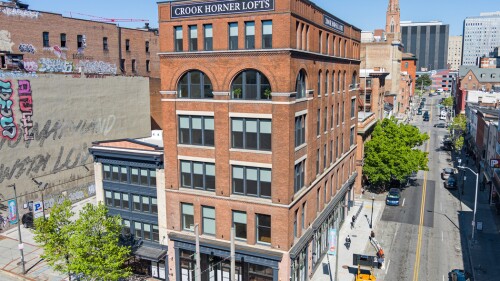With a growing risk of recession in the next 18 months, U.S. commercial real estate faces uncertainty but remains attractive to investors seeking yield and stability, two experts said during a recent ULI webinar.
Ken Rosen, chairman of Rosen Consulting Group, and Roy March, chief executive officer of Eastdil Secured, were the keynote speakers at the 28th annual ULI/McCoy Symposium on Real Estate Finance, held in December. During the webinar, they presented their views on what has changed since that event and what has remained the same for U.S. commercial real estate despite the Omicron variant wave of COVID-19 and the Russian invasion of Ukraine. ULI global chief executive officer Ed Walter was the moderator.
Rosen said the good news is that the world is entering the “coexistence” phase of the pandemic, though inflation fears in the United States are likely to rattle markets at least through the end of this year.
“Inflation is far more than transitory,” said Rosen, referencing the view of the U.S. Federal Reserve Board from early 2021. Since the McCoy Symposium, indications have been that the Fed will raise key interest rates in March and end its bond purchasing program.
The potential exists for a “messy” capital markets correction as the Federal Reserve takes aggressive action to constrain inflation, he said. He noted that residential rents and home prices are surging at historic rates.
Rosen’s forecast calls for inflation to be lower this year than last, but still elevated at 6.5 percent, compared with 2.3 percent in 2019. Some of the inflation on the real estate side has not showed up yet in the Consumer Price Index, he said. He also noted that construction costs alone jumped 16.9 percent last year.
On a positive note, hiring has boomed in cities in Texas and the Mountain states, Rosen said, though it is still lagging in New York, California, and Illinois. Even the Carolinas, Tennessee, and Georgia are seeing inflows of domestic migration, as are parts of Florida.
The resumption of legal immigration to the United States could add more than a half million people to coastal cities, Rosen said. Later in the webinar, March added that about 3 million American workers are still on the sidelines, so they could also stimulate job markets, with job openings sitting at historic highs.
On the demographics side, Rosen said the 35-to-54 age cohort, the prime group forming households, will grow more than 10 percent this decade, as will the group 55 and older, while the cohort under age 35 will grow at a slower rate, closer to 1 percent.
For investors, Rosen emphasized the need for stress-testing portfolios over the next three years, locking in gains, and hedging costs as interest rates rise.
March said that despite all that has changed since December, U.S. assets remain attractive in a world starved for yield, with both Germany and Japan having negative short-term interest rates. Also, investment in U.S. commercial real estate from South Korea has reached $5.4 trillion in 2022.
All traditional lenders such as life insurance companies, commercial mortgage–backed securities, and banks are well capitalized, March said, and U.S. banks are potentially looking to place $3 trillion in loans across the economy to make their profit margins on existing deposits.
In other positive numbers, real estate transactions rose 37 percent in 2021 from 2019 levels, with multifamily and industrial leading the way. And delinquencies were down 55 percent from 2020 to the end of 2021, though office delinquencies increased slightly year over year.
Nontraded real estate investment trusts had their best year on record in 2021 at $36.5 billion in investor inflows, March pointed out. With leverage, that translates to $70 billion to $80 billion per year in purchasing power.
March also noted that though U.S. stock markets have been weak since Labor Day 2021, commercial real estate returns have remained consistently strong.
The McCoy Symposium, which was held in person in New York City, is named in honor of ULI Life Trustee Bowen H. “Buzz” McCoy.







